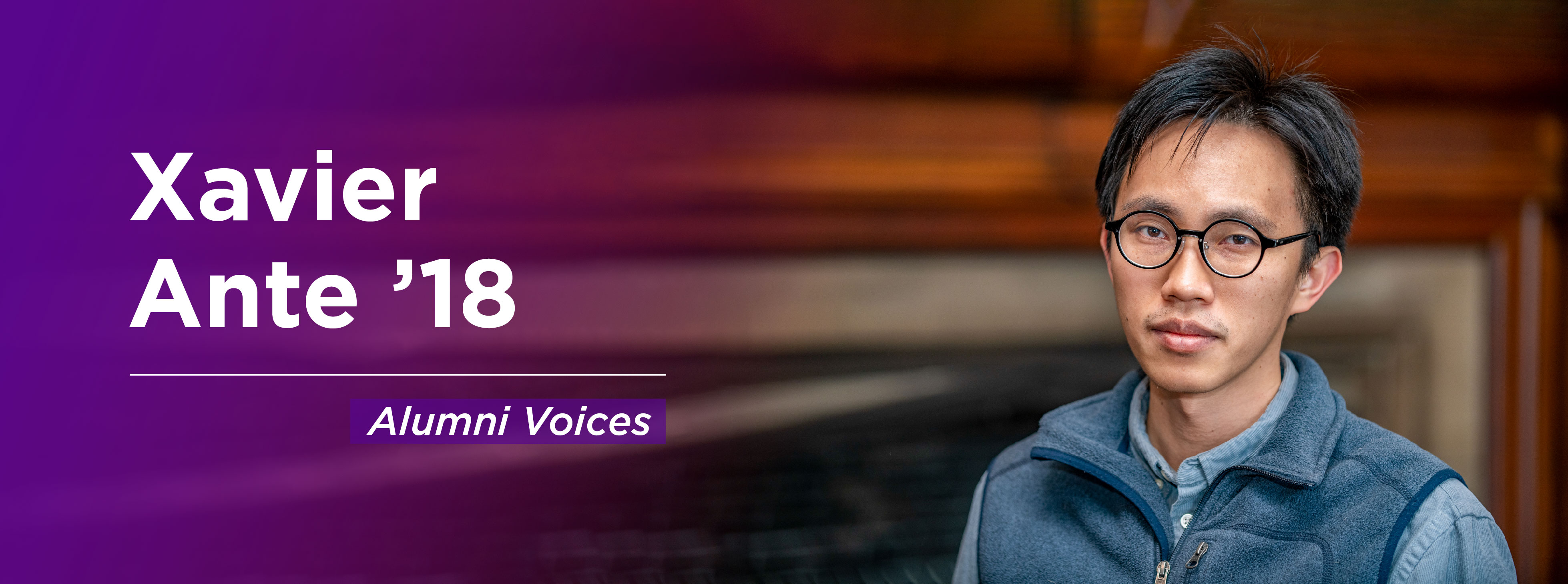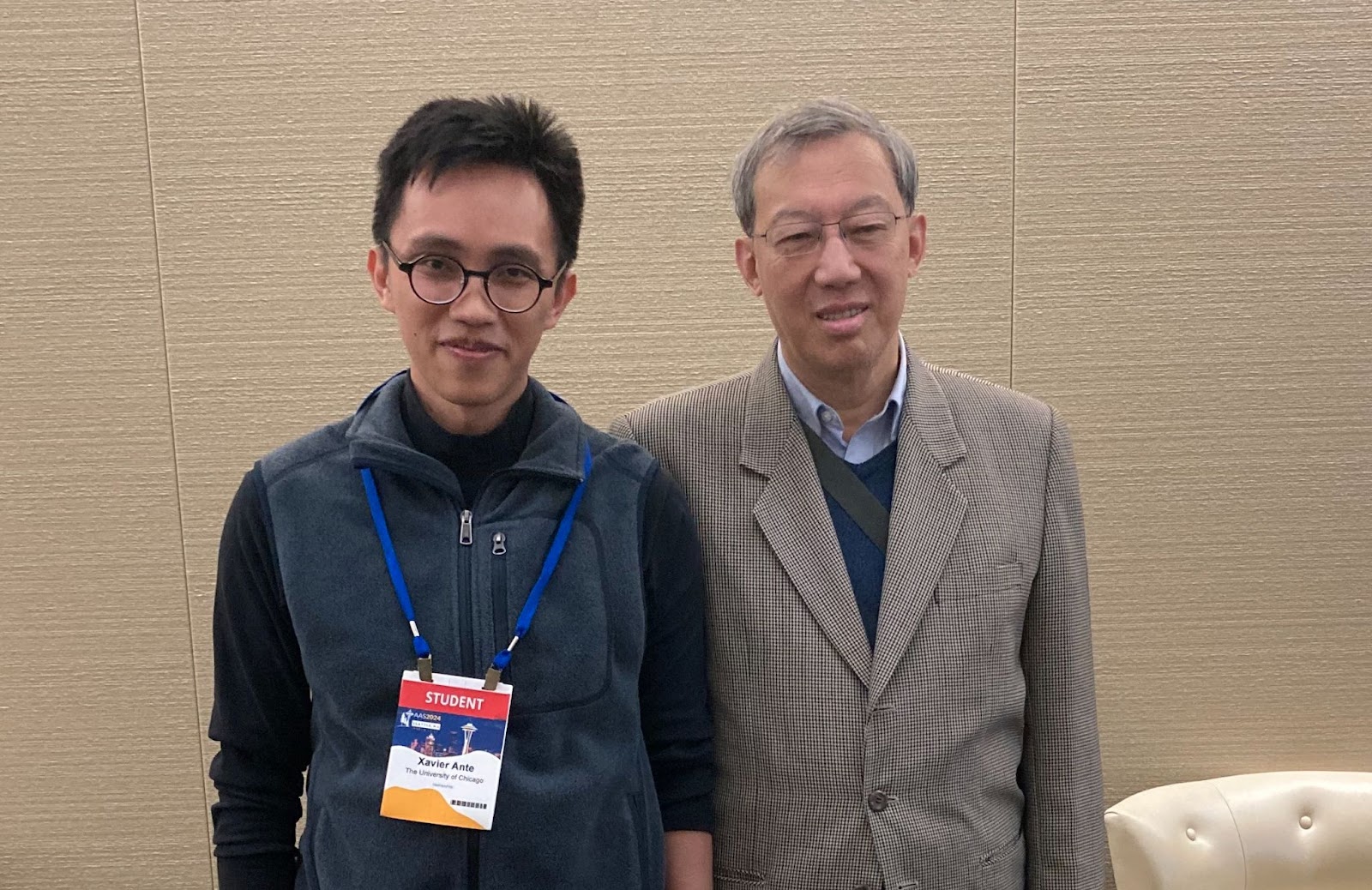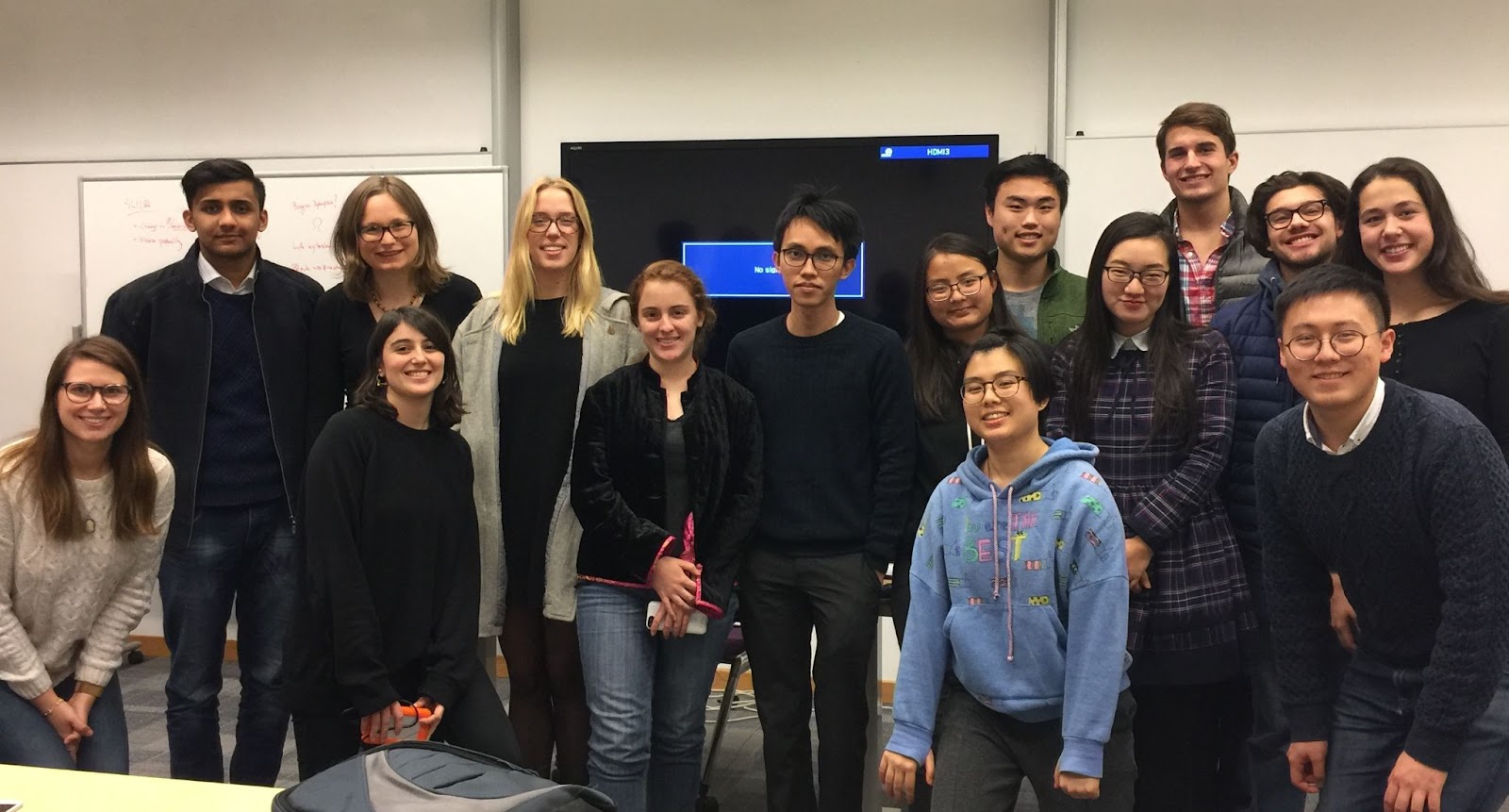
Xavier Ante ‘18, Chinese History PhD candidate, The University of Chicago
Hometown: Manila, Philippines
Major: Global China Studies
Before coming to NYU Shanghai, Xavier Ante ’18 says, he had never left his native Philippines. Growing up, dinner table conversations with his parents and grandparents revolved around how to develop the countryside, a core concern for any developing country. So it is not surprising that while at NYU Shanghai, Ante was inspired to delve into the economic links between Shanghai and the rural countryside. Ante discusses his current research at the University of Chicago on the Chinese timber trade that links Shanghai with Guizhou Province.
How was the transition to NYU Shanghai?
Before I came to NYU Shanghai, I'd never been out of the Philippines. I didn't expect Shanghai to be this glistening city. [NYU Shanghai] in many ways resembles NYU– it embodies a lot of the border-breaking ideals I suppose they thought about at the start. Having a roommate from China (for us international students), or not really having academic departments, or just having people from everywhere. It's a very different experience of college from what you get at a traditional university.
One of the nice things about NYU Shanghai [is] you do get to experiment a bit and see all the different disciplines. I took a class with Distinguished Global Network Professor of History Chen Jian and I was blown away. I think a lot of people probably have a similar experience – you just walk into this amazing lecture, with amazing stories, with [the professor’s] breadth of knowledge, and you're just so impressed. I had some image in my head, even when I was a freshman, that I would be a professor of some sort, [that] I would love to grow up to be just like Chen Jian.

Xavier Ante ’18 reunited with his mentor Professor Chen Jian at the 2024 Association for Asia Studies conference in Seattle.
My PhD is in Chinese history from a somewhat more transnational [perspective]. I look at the timber industry in China and I look at the domestic suppliers, but I also look at the inter-dependencies it has with places you never thought about as being connected to China, [for example] Seattle, or San Francisco.
My work is on the Miao people in southwest Guizhou Province and how they came to supply timber to Shanghai and the areas around it for their buildings, their houses. It's not a natural process. You need to clear out rivers, build an ecosystem of cultivators, traders, and skilled laborers. People had to do a lot of work over many decades to make it feasible at scale. And I look at the narrative of how it confronts the challenges that come with globalization [when] you no longer have an implicit monopoly on the timber market.
What’s the relevance of your research on forestry in China to what we’re observing in modern day China and the world?
The environment looms large in contemporary public discourse. People and their governments are (rightly) worried about access to water, food, minerals in a world where resources seem increasingly scarce, and no longer something you could just take for granted.
Part of what we learn from China’s past with timber and forests is that societies could still manage to defend their consumption habits by looking for new supply areas, even in the 20th century. For a family in Pudong in the 18th century, the world was still big enough. They might not have enough timber nearby, but folks in Guizhou were growing enough for them and their neighbors to build their homes, tools, and boats. When people from across the river started building large multistory buildings on the marshes a couple centuries later, American businessmen could fill in the gap and bring in timber from across the ocean.
The question for us in the present is whether we believe these conditions we have become accustomed to in the past still hold in the present. If you’re building electric vehicles and you need cobalt for your batteries, perhaps deep-sea mining or a new ore discovery is an option. You will need new solutions other than just finding the [same] resource from new places, and the world can feel a whole lot smaller than it did 50 years ago.

Xavier Ante (center) with classmates in Assistant Professor of Global China Studies Lena Scheen’s Global Connections class.
What experiences did you have at NYU Shanghai that have informed your understanding of the world?
Some of the most formative experiences I had during my time in Shanghai were well outside the four walls of the school. You accumulate a lot of experience very quickly from getting your shoes dirty out in the city, haggling with shopkeepers, talking to taxi drivers, navigating bureaucracies, and negotiating cultural differences. As the years go by I’ve come to appreciate the importance of the education you get from these experiences. It’s definitely different from what you would expect in a more enclosed campus setting.
What advice would you give to current students?
It's really helpful to just get yourself out there. Nothing beats getting face time with a person in real life. There's a real magic to it. I think people shouldn't forget that. Don't be afraid to make connections with people. There's also a lot to be gained from doing the hard thing of just going out there and just sitting down with people and spending that hour with them face to face. I feel like after the pandemic, people should really take the opportunity and get your face out there as much as you can.
The academic job market tends to be challenging, but I see myself going down that path. [But] there are many other things that you can do outside of academia that are completely rewarding experiences, and you shouldn't feel like academia is the only way forward.

